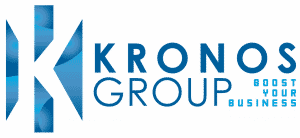How procurement consultancy services prepare organisations for inflationary markets

Summary
Inflation has been a growing challenge for organisations around the world, and while they race to find cost-effective solutions, suppliers are simultaneously increasing prices to meet the economic trends.
Procurement consultants and consultancy services are one of the leading solutions that contemporary organisations are seeking to help manage the impact of inflationary markets.
The most common way procurement consultants do this is by reducing exposure to additional costs through various sourcing and contracting methods to control the prices and their impact.
Such consultancy services could also help procurement teams understand the in-depth mechanisms of transferring risk to financial institutions and ensure they also consider strategically transferring risk to external entities.
While focusing on the external factors that can have an impact on an organisation is important, it is equally crucial to give attention to internal processes. Limiting internal risks through product development and manufacturing can help organisations change internal systems for a long-term solution that can withstand inflationary pressures.
——————————————————————————————————————-
For several years, inflation around the world was relatively low and procurement and supply chain leaders had little to be concerned about. While there were price hikes on certain commodities, they generally subsided before triggering any negative impact on the economy.
Today, however, the landscape takes on a different view as procurement organisations are purchasing items and making plans in the midst of growing inflation. Meanwhile, suppliers hike prices and organisations do not possess the right tools and mechanisms to determine whether the price hikes are necessary.
The world is currently in collective turmoil and organisations are tasked with understanding and preparing for any future inflationary trends. While the exact date or impact cannot definitively be identified, it is a reasonable assumption that there will be more inflationary markets that will emerge.
Procurement teams that are not familiar with the mechanisms required to develop strategic plans to counter these fluctuating economies have begun to turn to procurement consultancy services to provide them with the expertise to create long-term strategies.
Reducing exposure to additional costs
Procurement consultancy services can analyse and identify the best ways for procurement organisations to reduce the additional costs that may be incurred with suppliers.
They help organisations achieve this by employing numerous sourcing and contracting mechanisms. For instance, they may recommend having an extended pool of suppliers—instead of a few—to give organisations more options to select raw material suppliers in case of price hikes.
In some instances during inflation, your procurement consultants may even suggest partnering with a supplier to share any procurement risks in the supply chain through fixed, long-term contracts.
Companies could also come up with terms and conditions in their contracts that allow them to change the risk exposure and the contract expiration.
For instance, suppliers and organisations could agree on a volume, but decide to update the prices as and when the market fluctuates. Another approach could be for organisations to absorb some of the risks in exchange for concessions or reduced prices on goods or raw materials.
Transferring risk to external entities
Organisations could come across many hedging strategies to transfer the risk to counterparts in the financial market, but procurement consultancy professionals advise that this should not be the only solution that businesses rely on.
Businesses should also get the involvement of their financial teams who may possess the benefit of having in-depth financial knowledge to understand these sophisticated mechanisms. If these options cannot be vetted by the right teams, organisations might be putting themselves at a much higher risk.
Aside from financial institutes, organisations can also transfer risk to outside parties by collaborating with other organisations that have similar goals. For example, one manufacturer can strike a contract or deal with another manufacturer to exchange raw materials. This ensures minimised costs and reduced supply chain risks.
Limiting internal risks through product development and manufacturing
One of the main components that procurement consultancy professionals will look into first is the flexibility in product development and manufacturing. Organisations should focus on mitigating inflation primarily through internal controls, and shifting production or manufacturing to offshore locations when prices increase is a common practice.
Consultancy services are not simply a helpful option for finding alternative solutions but they can often help identify the negative practices that companies are engaging in that could prove to be harmful to their bottom line in the future.
For instance, many companies may stockpile materials when prices reduce. While it may seem like a promising option, there are costs associated with activities such as maintaining inventory. The right procurement professionals can help navigate through these options and offer a more strategic and long-term solution for future inflationary markets.
Procurement consultancy services can help withstand future inflation trends
Contemporary procurement teams face many challenges. In many ways, the decision these teams make could impact the overall profitability of the organisation. Developing plans and strategies to mitigate modern inflationary pressures and the pressures that are sure to rise in the future require a level of creativity and skill that most teams do not possess.
More contemporary businesses are turning to consultancy services to counter the lack of expertise that they possess internally. Backed by the right negotiation skills, procurement leaders can help their organisations mitigate the rising costs and alternative impacts caused by inflation and prepare for a stable future.




